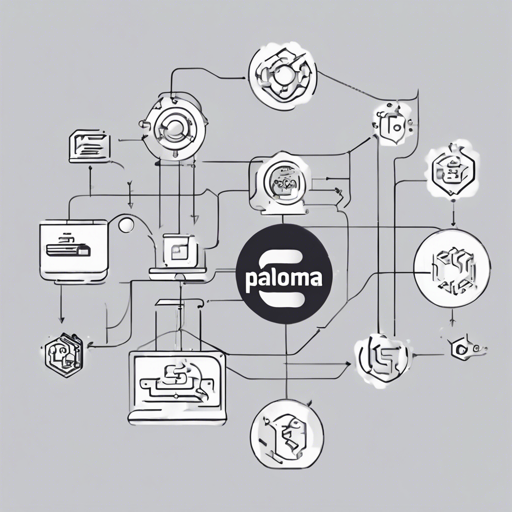If you’re looking to dive into the exciting world of decentralized automation for smart contracts, look no further than Paloma Chain! With a Golang implementation, you’ll be able to deploy on various platforms like Cosmos, EVM, Solana, and Polkadot. This guide will walk you through the steps to get started. So, let’s roll up our sleeves and get our hands on the code!
Table of Contents
Talk to Us
Engage with our vibrant community through our active platforms:
Active Networks
Paloma Chain currently operates on two active networks:
- Testnet: paloma-testnet-16 (May 23, 2024)
- Mainnet: tumbler (April 22, 2024)
Installation
Follow these steps to install and set up Paloma on your local machine:
- Install the Correct Version of libwasm:
First, ensure you have the correct library version:
wget https://github.com/CosmWasm/wasmvm/releases/download/v1.5.2/libwasmvm.x86_64.so sudo mv libwasmvm.x86_64.so /usr/lib rm -r ~/.paloma/data/wasm/cache - Get the Latest Prebuilt Palomad Binary:
Download the latest release of Palomad:
wget -O - https://github.com/palomachain/paloma/releases/download/v2.2.2/paloma_Linux_x86_64.tar.gz | sudo tar -C /usr/local/bin -xvzf - sudo chmod +x /usr/local/bin/palomad - Connecting to an Existing Network:
Choose your network (Testnet or Mainnet) and set it up:
MONIKER=$(hostname) palomad init $MONIKER # Choose your chain ID as per network: # Testnet: CHAIN_ID=paloma-testnet-16 # Mainnet: CHAIN_ID=tumbler - Start the Node:
After completing these steps, start the node:
palomad start
Analogy: Think of Paloma as a Post Office!
Imagine if you want to send letters (smart contracts) to different neighborhoods (blockchains). Instead of each neighborhood having its own post office, think of Paloma Chain as a universal post office that can understand and deliver messages across various neighborhoods simultaneously. It ensures each letter arrives safely, on time, and to the correct address, just like a well-functioning decentralized automation network!
Troubleshooting
If you encounter issues during installation or operation, consider these tips:
- If you see errors related to GLIBC version differences, it might be due to the libraries on your host system. To resolve this, pull down the source code and build it instead of using prebuilt binaries.
- Ensure you are using libwasm version 1.5.2. If upgrading from an earlier version, always clear your cache to prevent errors.
- In case of any account sequence mismatch, it may require you to wait for your local Paloma to catch up with the chain.
- For further assistance, feel free to connect with us at fxis.ai.
At fxis.ai, we believe that such advancements are crucial for the future of AI, as they enable more comprehensive and effective solutions. Our team is continually exploring new methodologies to push the envelope in artificial intelligence, ensuring that our clients benefit from the latest technological innovations.
Conclusion
Paloma Chain, with its decentralized, cross-chain capabilities, opens up exciting opportunities for smart contract engineers. By following the steps outlined in this article, you’ll be well on your way to harnessing the power of Paloma!
For more insights, updates, or to collaborate on AI development projects, stay connected with fxis.ai.

